Moscow Says 16K 'Volunteers' To Join Russian Invasion Of Ukraine
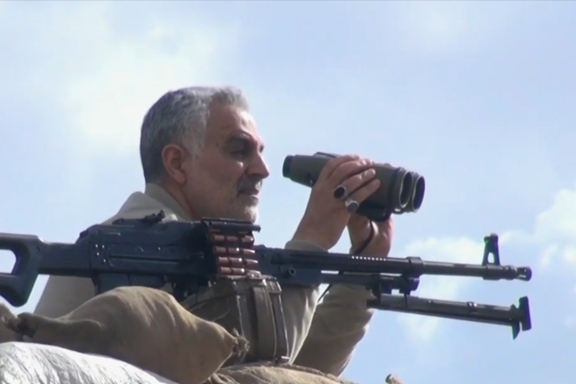
President Vladimir Putin has approved deploying up to 16,000 volunteers from the Middle East to fight alongside Russian forces in the invasion of Ukraine.

President Vladimir Putin has approved deploying up to 16,000 volunteers from the Middle East to fight alongside Russian forces in the invasion of Ukraine.
As Russian troops continue their offensive toward the Ukrainian capital Kyiv from the northwest and east for more than two weeks, Putin on Friday gave the go-ahead to enlist battle-hardened forces from conflicts such as in Syria on Friday.
"If you see that there are these people who want of their own accord, not for money, to come to help the people living in Donbass, then we need to give them what they want and help them get to the conflict zone," Putin said at a televised security council meeting from the Kremlin.
Reports began emerging earlier this week that Russia wanted to recruit fighters in Syria, with the clear danger of Iran-backed forces and other militants going to Europe to fight.
"As to the delivery of arms, especially Western-made ones which have fallen into the hands of the Russian army - of course I support the possibility of giving these to the military units of the Lugansk and Donetsk people's republics," Putin added.
During the meeting, Defense Minister Sergei Shoigu proposed that Western-made Javelin and Stinger missiles that were captured by the Russian army in Ukraine should be handed over to Donbass forces.
Responding in a video message, Ukrainian President Volodymyr Zelensky said "thugs from Syria" would be coming to kill people "in a foreign land".
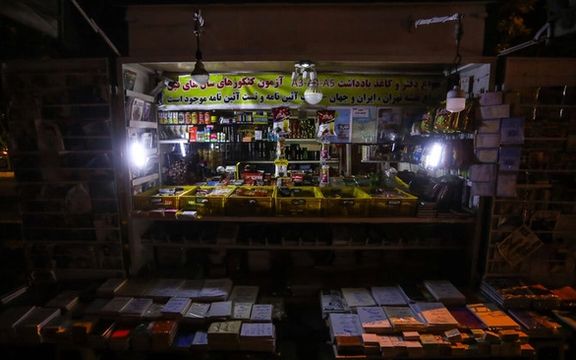
Iran’s government has developed a wish list to boost its fossil fuel production and power generation, after years of relative neglect and lack of investments.
As a country with one of the world’s largest oil and natural gas reserves, Iran often faces power cuts and a decline in gas and oil production at a time when the Ukraine invasion has created a good opportunity for exports to Europe. Years of infrastructure neglect have left the energy sector underdeveloped.
A working paper prepared by President Ebrahim Raisi’s government calls for “a balance between production and consumption” in energy. While extremely cheap electricity and gas rates have been driving up domestic annual consumption by 6-8 percent in recent years, very little has been invested in increasing gas production to provide fuel for power stations.
Iran has been forced to use diesel and heavily polluting oil biproduct mazut in peak summer and winter months to keep power plants working. As a result, major cities have either experienced extensive blackouts or have been covered with smug and pollution in June-August and December-February.
In addition to insufficient fuel for power plants, an aging power grid also wastes large amounts of energy.
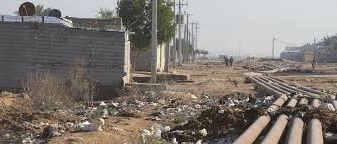
The paper says that power generation and the electricity grid also need serious investment. In total, 17,200 kilometers of electricity transmission lines are needed. Based on existing cost estimates in other countries it would cost at least two billion dollars, (considering lower labor cost in Iran), to address immediate needs. The shortfall of around 10,000 megawatts of power generation would need an immediate investment of another $8 billion, and every year an additional $4 billion to keep up with power demand.
To secure these investments the government has theoretically three options: Raising private sector investments, raising energy cost for consumers or appropriating money for the infrastructure the country desperately needs. None of these options are feasible at the moment, for two reasons: Iran’s centralized economy is inhospitable for private investments in public sector and the specter of international sanctions keeps investors away.
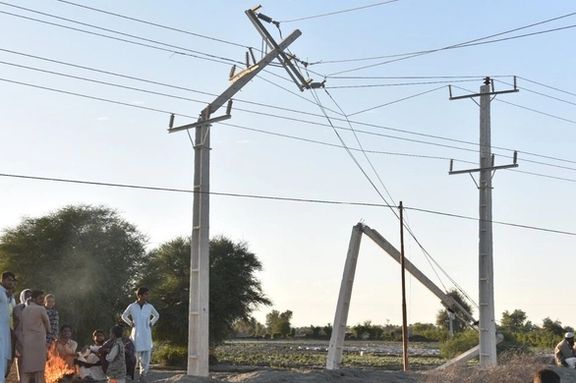
Foreign investors would hardly entertain the idea of investing in a country with an unpredictable internal dynamic of anti-West politics and rhetoric. The government, mired in economic crisis and potential political instability cannot raise energy prices either, and current oil revenues are too small to enable direct government financing. The cheap energy offered to consumers for years runs into hundreds of billions of dollars, mainly neutralizing the benefit of oil exports.
If Iran can reach a nuclear agreement with the United States, have sanctions lifted, and export around two million barrels a day at current high prices, it would earn around $60 billion annually and would be able to finance some infrastructure projects.
But the government plan published by IRNA also calls for investments in the upkeep and expansion of oil and gas production, without mentioning a price tag. However, in November 2021, oil minister Javad Owji did mention the huge amount of investments needed, when he said that Iran should secure $160 billion to revitalize its oil and gas sectors.
Based on these estimates, Iran needs to find $200 billion dollars in the 5-7 years to keep its energy infrastructure and fossil fuel resources adequately maintained. Removal od US sanctions and full oil exports would be insufficient, given so many different subsidies and entitlement programs the government must provide if it does not overhaul its economic system.
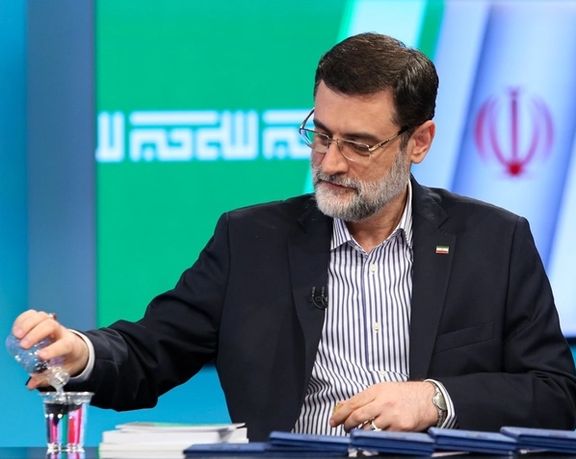
Despite recent criticism over a deal between Iran and Iraq martyrs’ foundations, Tehran plans for a regional union of similar entities in Iraq and Lebanon.
In his speech before the sermons at Tehran Friday prayers, the head of Iran’s Foundation of Martyrs and Veterans Affairs, Amir-Hossein Ghazizadeh Hashemi, said he wanted to establish the “Union of Martyrs’ Foundations of the Resistance Axis.”
This would include Iranians and Iraqis killed in the 1980-88 war, as well as those killed in the ‘resistance axis’ of Iran-backed militias, including Palestinian and Iraqi groups, and Hezbollah in Lebanon. Estimates of deaths in the 1980-88 war have ranged from 500,000 to 1 million.
Ghazizadeh said that “so far Lebanon and Iraq have announced their readiness.” He praised the “the axis of resistance” as “a symbol of self-sacrifice” and called on Iranians to “stand with our dear brothers…committed to the culture of the revolution around the world.”
The Iraqi martyr’s foundation is run by the government, while in Lebanon the Martyrs Foundation is a Hezbollah support network sanctioned by the United States. There is also a Palestinian martyrs foundation in Lebanon.
Earlier in March, Ghazizadeh signed a deal to provide a wide range of services to Iraqi veterans, including those from the Iraq-Iran war, drawing criticism and calls for his resignation from Iranians and veterans who say Iran can barely provide the needed services for its own veterans and their families
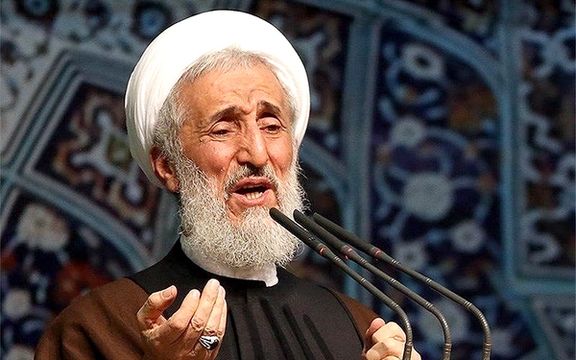
Friday prayer Imams in Iran have defended the government for not opposing Russia's invasion of Ukraine, saying Kyiv was pro-West and not friendly toward Tehran.
Ayatollah Reza Ramezani, a supporter of Ali Khamenei, claimed on Friday Iran has never directly backed Russia's invasion of Ukraine, although Kyiv has always maintained positions against Tehran.”
The cleric who was previously in charge of the Shiite mosque in Hamburg, Germany, charged that "Ukraine's government has always supported the demands of arrogant powers," adding that "we abstained from voting to condemn Russia at the United Nations" for its invasion of Ukraine.
Earlier this week, Russia's ambassador to Tehran Levan Dzhagaryan (Jagaryan) told Iranian reporters to use the term "special military operation", rather than the word "war" or “invasion” about the Russia’s attack on Ukraine. Many Iranian intellectuals and reporters called on the foreign ministry to summon the ambassador and tell him that he is in no position to boss around Iranian reporters.
Reformist figure Mostafa Tajzadeh wrote in a tweet: "Iranians still remember the bitter experience of Saddam Hussain's war and his aggression against Iran as a neighboring country. For this, Iranians condemn the military attack" on Ukraine.
Tehran's Friday prayer Imam Kazem Sediqi also said on Friday that Ukraine gave Iranian leaders a hard time when Iran downed a Ukrainian civilian airliner in January 2020. An IRGC unit fired two missiles at the plane taking off from Tehran killing 176 civilian passengers and crew members.
Trying to justify Iranian leaders' support for Russia's invasion, Ramezani said: "We are against war and violence, but the Islamic Republic needs to adopt positions in the international scene based on rationality.”
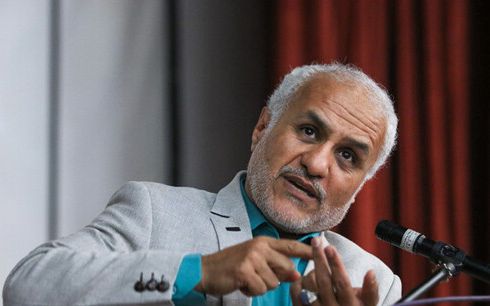
In the meantime, according to Etemad Online website, Russia's supporters in Iran have been beating on the drums of conflict. Hassan Abbasi, a zealot fundamentalist commentator has once again on Friday called for turning the White House into a mosque, imposing compulsory hijab on American women, and converting westerners into Islam. Abbasi also said that "The war between East and West can have only one winner, and that will be Iran!"
Also on Friday, as nuclear talks between Iran and world powers stopped because of Russian demands, journalists and commentators as well as other social media users blamed Russia and Iranian leaders' support for Moscow for the deadlock.
Political analyst Jamshid Barzegar wrote on Twitter: "As it was predictable, Iranian leaders refused to resist Russia probably because they were unable to do so. The Vienna talks have been stopped without any result not based on Iran's national interests, but because Moscow wanted the talks to collapse. Iran is suffering because of Putin and its own ruling clerics."
Iranian journalist Milad Alavi also wrote: "The Vienna Talks have been suspended and history will witness that a regime whose motto was neither East, nor West, imposed sanctions on its own people for the sake of Russia's interests."
Ironically, Ramezani the cleric who is a member of the Assembly of Experts, told Iranian reporters in an interview on Friday that the negotiations have reached a good point.
The pause in nuclear talks for the time being puts an end to all hopes of a breakthrough that could relieve Iranians from the backbreaking pressure of sanctions. This comes while even Russian President Vladimir Putin has acknowledged that because of sanctions on Russia's oil, the US is prepared to give countries including Iran and Venezuela special treatment to make sure that they replace Russia in the oil market.
Some Iranian political figures and analysts had also suggested during the past week that Iran should seize the opportunity to mend its ties with the United States and sell its oil at high prices after several years of sanctions on its oil export and international banking.
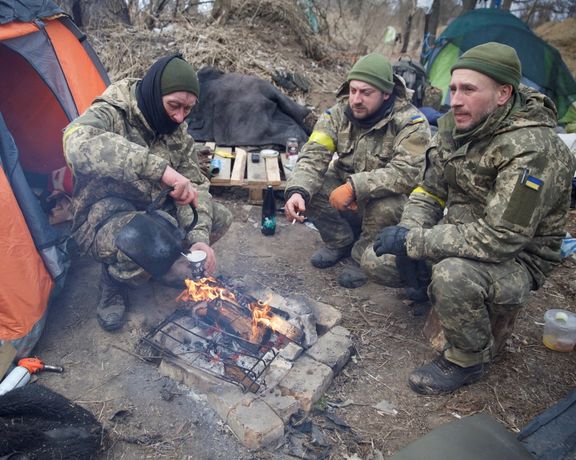
Two former Iranian presidents have condemned the Russian invasion of Ukraine despite to government’s position of tacitly supporting Moscow and blaming the West.
In a message published Thursday Khatami described Russia’s intervention as “an invasion of a free territory by a foreign power.”
Khatami, reformist president from 1997 to 2005, said that “regardless of the causes of this unfortunate situation… what is happening in Ukraine is…the repression of a nation that has shown, especially in these days, that it wants to live freely and independently.”
Before him, another former president, Mahmoud Ahmadinejad, had praised Ukraine’s “unrivalled resistance” and rebuked Iran’s leadership, since Iran − like China, India, and the United Arab Emirates − has abstained in United Nations votes condemning the Russian invasion.
Addressing the “great nation of Ukraine” and its president, Volodymyr Zelenskyy, Ahmadinejad said, “Your honorable and almost unrivalled resistance uncovered the Satanic plots of enemies of mankind.” Ahmadinejad, ‘principlist’ president from 2005 until 2013, tweeted: “Trust that the great nation of Iran is standing by you, while admiring this heroic persistence.”
A lively debate about Russia’s invasion of Ukraine continues in Iran, with divisions reflecting wider disagreements among various factions over foreign policy. While reformists have been more critical of Russia, and many Iranians have condemned Russia, supporters of Supreme Leader Ali Khamenei have been sympathetic to Russia’s position and accused the US and NATO for provoking Russia.
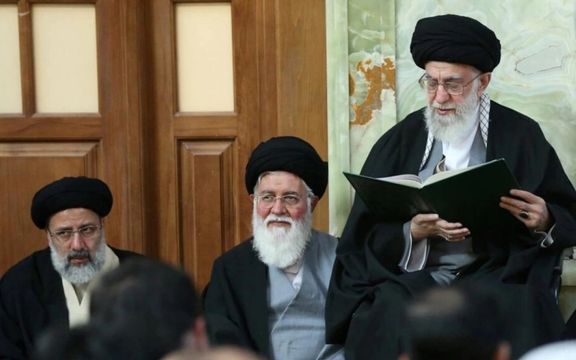
Ahmad Alamolhoda, a senior firebrand cleric who is father-in-law of President Ebrahim Raisi (Raeesi), has urged people to reproach women with poorly-fitting hijab to stop “debauchery.”.
“It is not possible to confront these people with the police and weapons,” said Alamolhoda, who is Supreme Leader Ali Khamenei’s representative in the shrine city of Mashhad. “If a woman in the street removes her headscarf, she must face the complaints of the people to see that she has no place…In such a case, you can be sure that she will wear even two scarves."
Alamolhoda said that law enforcement forces, including the morality police charged with regulating public behavior including dress codes, were not a solution “and even make the situation worse.”
He cited Kamenei as ordering “to fire at will”, metaphorically giving a green light for religious zealots to confront women in the streets, which sometimes leads to physical attacks.
Despite the cleric’s ruling out “weapons,” at least eight acid attacks in Esfahan in 2014 carried out by vigilantes were blamed by some, including Hadi Ghaemi of the US-based International Campaign for Human Rights in Iran, on calls from conservative figures for more ‘Islamic’ standards in dress codes. Alamolhoda spoke out on the issue in January, suggesting that that loose-fitting hijab should not be accepted in public.